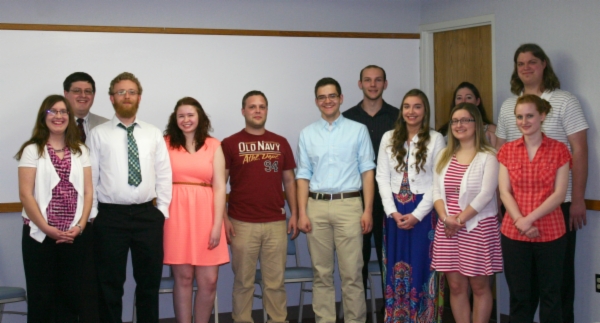Mathematics Program at ACC
Program Description
Program Curriculum
Alpena Community College offers an Associate in Science (AS) Degree with a Concentration in Mathematics that provides you with a well-rounded foundation in mathematics and science if you are interested in transferring to a four-year college or university.
The curriculum for this program of study is designed to be as flexible as possible to meet your unique transfer needs. In addition to your mathematics course work, you’ll earn additional credits in four core areas: English composition; humanities and fine arts; science; and social sciences, for a total of at least 60 credit hours.
Because ACC participates in the Michigan Transfer Agreement (MTA), you’ll find the general education courses you take here will transfer easily to most public and private community colleges and four-year institutions in Michigan. You will want to work closely with your advisor to ensure success in this area.
Before starting any program at ACC, a student’s academic background, assessment scores or testing results are reviewed to determine the right courses to take. Review classes are also available to prepare students to meet the academic requirements of these programs.
Career OptionsAn Associate in Science Degree with a Concentration in Mathematics prepares you to continue your studies in a variety of transfer programs and, ultimately, for a wide range of careers. As a mathematician, you use mathematical theory, computational techniques, algorithms, and computer technology to solve problems in many areas of our society — economic, scientific, engineering, physics, business, and others.
Your work as a mathematician will typically be concentrated in theoretical or applied mathematics. If your focus is theoretical mathematics, you work to develop new theories or improve existing theories of mathematics. Applied mathematicians take existing mathematical theories and apply them to practical problems, such as determining the most efficient manufacturing process or transportation schedule. As an applied mathematician, you may work as a statistician, actuary, operations research analyst, or in another specialty field of mathematics.
You may work in private industry, for a university, or for a government agency. Mathematicians who work in a university setting usually have a mix of teaching and research responsibilities. Many non-university mathematicians work for the government, with the Department of Defense accounting for almost three-fourths of the mathematicians employed by the federal government. Mathematicians may also work on teams with engineers, scientists, and other professionals.
Your average salary depends on the size, type, status (private vs. public) and location of your employer, as well as your skill and experience level. According to the Bureau of Labor Statistics*, mathematicians with a master’s degree can expect to make an average of $96,280. However, there are some positions available for those with a bachelor’s degree. Employment of mathematicians is projected to grow 31 percent from 2021 to 2031, much faster than the average for all occupations. Those with a graduate degree in math, very strong quantitative and data analysis skills, and a background in a related discipline, such as business, computer science, or statistics, should have the best job prospects. Computer programming skills are also important to many employers.
* Bureau of Labor Statistics, U.S. Department of Labor, Occupational Outlook Handbook, on the Internet at http://www.bls.gov/ooh (visited April 13, 2023).
Like Sigma Zeta on Facebook!
Sigma Zeta is a national undergraduate math/science honor society that encourages and fosters the attainment of knowledge in the natural sciences, computer science, and mathematics while recognizing the attainment of high scholarship among those inducted into this society. Membership is open to students with a major in mathematics, science, or computer science. Chapter activities include speakers and field trips to industries of interest. Volunteer opportunities such as working with Science Olympiad are available along with social/academic events of interest to the members. Membership in the ACC Chapter of Sigma Zeta can give you the opportunity to get involved with local research projects.
Contact the Math Program
| Meghan Cameron Instructor cameronm@alpenacc.edu 989.358.7307 |
Sarah Burt Instructor burts@alpenacc.edu 989.358.7314 |
Dan Rothe Instructor rothed@alpenacc.edu 989.358.7305 |

